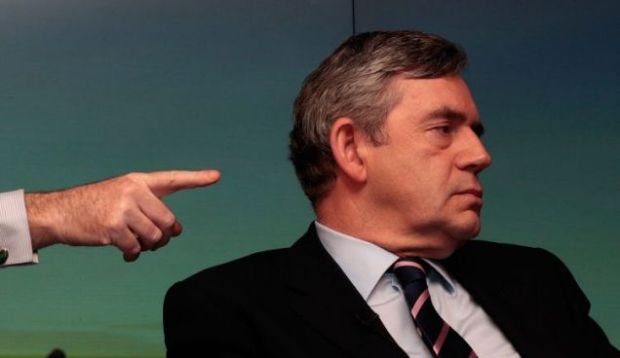The casual passer-by to this page might reasonably conclude that I have been terribly lazy throughout the month of August. It’s been a while since I’ve posted, and there are a number of reasons for this. First and foremost is the fact that my job (the one that pays the bills) is currently at full stretch with the height of the Cornish holiday season. I normally delight in telling people how easy my job is (loafing around behind the bar, making the odd sarcastic remark) but August is the month in which you could probably stretch it and say that I actually earn my money for once.
Of course, the traditional tourist rush isn’t the only reason I haven’t bothered to post here. As you will probably be aware, this blog is mostly (although not entirely) about politics, and the beauty of the free availability of blogging websites is that non-entities like me have every opportunity to vent spleen in a public forum about the poor misguided fools who aspire to run our lives.
The trouble is, after the General Election and the initial excitement of the first hung parliament in nearly forty years, politics has become rather dull again. The Coalition, while by its very nature containing some finely distilled elements of pure evil, is doing its best to be as insipid as possible. Pickles and Gideon only slither out infrequently, while even David Cameron seems to have temporarily parked the shrill, fat-faced toff act from the months leading up to the General Election. All of these things have served to keep my bile levels in a manageable state over these last few weeks. I can’t say this is a situation I entirely welcome.
The Labour Party haven’t helped matters much either. Their leadership election could have been a golden opportunity for a party, freed from the shackles of a long period in office, to capture the public imagination with an eye-catching and far-reaching debate over the future of the country and the role of the left. Fat chance. It’s been a bunch of dull people talking about dull things in a dull way. They could at least have organised some sort of nasty spat between a couple of the candidates but we haven’t even been given that pleasure. Deeply disappointing.
And so I find myself nearing the end of August with very little to write about. I can’t even summon any great sense of disgust about the return (tonight) of the single event that will over-shadow everything else for the next four months. I refer, of course, to the over-produced, overblown dung-polishing extravaganza that is the X-Factor. I wish it would make me mad, but I just don’t really care, to be honest. There’ll be bad auditions, heart-breaking back stories, manufactured spats between the judges, the annual assault on the Christmas Number One and the whole thing will be reported and tweeted about endlessly and watched by millions (although I won’t be one of them). But, to be honest, it’s part of the furniture now and Cowell’s dominance of the Christmas charts (Rage Against The Machine aside) at least spares us from Sir Cliff.
So I’m hoping that things will get back to normal before too long. Cameron, Gideon, Pickles et al will soon be back from their holidays (one pictures them all collectively attending some sort of giant reptile camp for the parliamentary recess) and my natural irritation levels will surely soar again. And who knows, the Labour Party might even do something hilarious and choose Ed Balls as their Leader. Here’s hoping…











